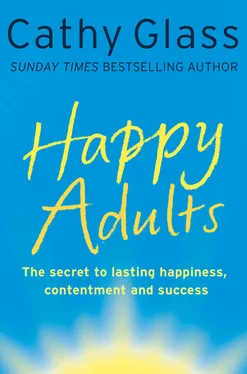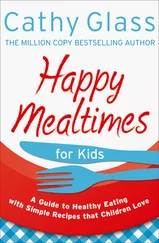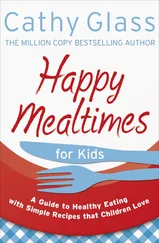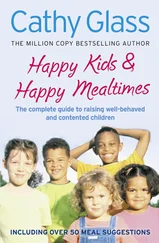A woman of thirty-two wrote about her mother who had given her other daughter (the writer’s sister) a diamond ring that she had inherited from her mother and had sentimental value. The woman had seen the favouritism and had translated it as her mother loving her sister more than she loved her. She had been upset and angry for over a year and this anger was souring her relationship with her mother and sister, whom she loved dearly. The turning point for her came when she addressed herself as follows: My mother decided to give that ring to my sister. It was her choice. Although it’s going to be very difficult, I need to stop being angry and ask her why she decided to do that. Have I done something to upset her?
When she finally plucked up the courage to ask her mother, she wished she’d asked her sooner and so avoided a year of anger, pain and resentment. Her mother’s actions were entirely innocent of any favouritism. It was simply that the other daughter had always been fascinated by the ring, right from childhood, so when the ring no longer fitted the mother’s finger (because of arthritis) she had naturally given it to the daughter who had been interested in it, never dreaming she was causing her other daughter pain. The mother apologized, although there was no need, for the writer knew what her mother was saying was true.
Perhaps what has caused you to be angry and depressed is not one incident but a culmination of small incidents that have built up over time. Or it may be there aren’t any incidents at all, but just an ongoing gnawing anger that life promised you something and hasn’t delivered.
One reader from the US wrote: I was fed up with my life; nothing seemed right. There was no reason. I mean I hadn’t been abused like the children in your books but there didn’t seem any point to life. I was twenty-nine and hooked on antidepressants and pills to make me sleep. I really hated the person I had become – negative, angry and finding fault in everything. It’s a wonder I had any friends left at all. Then one evening after a really bad day I asked myself: do you really want to carry on like this or are you going to try and find something better? I realized at that moment it was down to me: my future was in my hands. I could carry on as I was – unhappy and hating everything – or I could change and be happy.
The woman carried on to say that with the help of a life coach, who showed her how to focus on the positives in life, she had stopped taking all the pills and was finally enjoying life.
Whatever the reason, if you are angry you will be unhappy and at some point you need to make a conscious decision to let go and move on. For this woman the turning point was the question Do you really want to carry on like this, her acknowledgement that she didn’t and her readiness to move on and do something different. It may help to say out loud why it’s time to let go. In my case it was You have to admit your marriage is over.
We can sometimes take on responsibility for the actions of others, convincing ourselves we are to blame for the outcome when in fact we have no control of those actions, and this results in us feeling frustrated and angry. In such cases we need to pass the responsibility for the bad word or deed back to the person who had issued it, acknowledging their responsibility (as in the case of the rape victim, where she acknowledged that it was the police’s decision not to prosecute) or if necessary asking that person why they acted as they had, before we can let go of our anger and move on.
You may find you need some extra help to move on, as the lady who approached a life coach did. Don’t be afraid to ask for help, from whichever source you feel most comfortable with – a counsellor, a life coach, a therapist, your minister, your guardian angel or your god. You have made the decision to move on; if you need extra help, take it.
When you reach the turning point, you can take action by acknowledging the truth, thereby allowing yourself to deal with the anger and move on to happiness and contentment.
CHAPTER TWO
Take Responsibility for Your Life
While we are not responsible for the decisions and actions of others (as we saw in the last chapter) we are always responsible for our own decisions and actions, although sometimes we would rather not admit it.
If he had shown me more affection I wouldn’t have needed an affair …
She went on at me until I hit her. She should have left it. I can go out with my mates if I want.
These two readers were trying to transfer blame and therefore responsibility to their partners. On occasions we are all guilty of blaming others for our actions and the reason we do so is obvious. If only he/she hadn’t I wouldn’t have … They shouldn’t have put temptation in my way … etc. Transferring the blame, in our eyes, transfers the responsibility and therefore lets us off, or so we would like to believe. Clearly this is untrue, for we are only transferring the responsibility in our minds. No one else has accepted responsibility for our actions. We haven’t been let off the hook: we are simply in denial.
A man aged forty-three wrote: I blame my father for always criticizing me as a child. I couldn’t do anything right. If I got a B grade he said I should have got an A. If I scored a goal he asked me why I’d missed the other two shots. The man wrote that in adult life he reacted very badly if he thought anyone was criticizing him, becoming angry and aggressive, even when the criticism was in fact constructive feedback from his boss at work. He knew he was over-sensitive to what he perceived as criticism and his reaction was causing a problem both at work and in his private life. His wife felt she was ‘walking on egg shells’ and daren’t say anything in case he took it personally.
From what the man said it was likely his father had been over-critical, but by using his father as a convenient scapegoat for any negatives in his life, and failing to take responsibility for his own failings, he was endangering his relationships at home and work. I have been taken aback by the number of other readers in middle age and older who are still able to blame their parents (or carers) for all that was wrong in their present lives. No parent is perfect; parents are fallible human beings and will get their parenting wrong as often as they get it right. Without doubt some people have easier and happier childhoods than others, but as adults we owe it to ourselves to take responsibility for the present and future and move on. As a general guideline, if you haven’t taken responsibility for your own life by the age of twenty-five, then you need to do so ASAP. Otherwise life will be a series of missed opportunities, regrets, discontent and unhappiness. While we can’t change the past, by taking responsibility we can change the present and future. The key to our success is entirely in our own hands.
As well as blaming others and assigning to them responsibility for our lives, we are also very good at blaming situations, circumstances and even fate. I know I’m not being offered the jobs because of my size, wrote one reader who was in her mid-twenties and weighed 25 stone. Her CV was excellent and she was readily called for interview for jobs as a receptionist. But as soon as she walked into the interview room, she said, she knew from the look on the interviewers’ faces that she wouldn’t be offered the job. There is a lot of prejudice towards large people which won’t change overnight. The harsh reality is that if the woman wants a job as a receptionist she is going to have to take responsibility and diet, or accept that she must look for a job where her appearance doesn’t have to conform to a norm.
A lad of eighteen who had failed his exams and dropped out of school wrote: I have a big family with six stepbrothers and sisters. There was never anywhere that was quiet for me to study. That’s why I failed. He was bemoaning being unemployed and having no money. I appreciated that it must have been difficult for him to study at home, but if he had taken responsibility he could have found somewhere quiet to study, such as the library or homework club at school. Even though he now recognized he needed qualifications to get a job, he was still refusing to take responsibility. One option would have been to enrol in a college course to gain the qualifications he needed, and his mother had suggested this, but the lad had a ready list of excuses as to why this or any other suggestion wouldn’t work. Until he took responsibility for his life he was going to continue disgruntled and without a job.
Читать дальше












